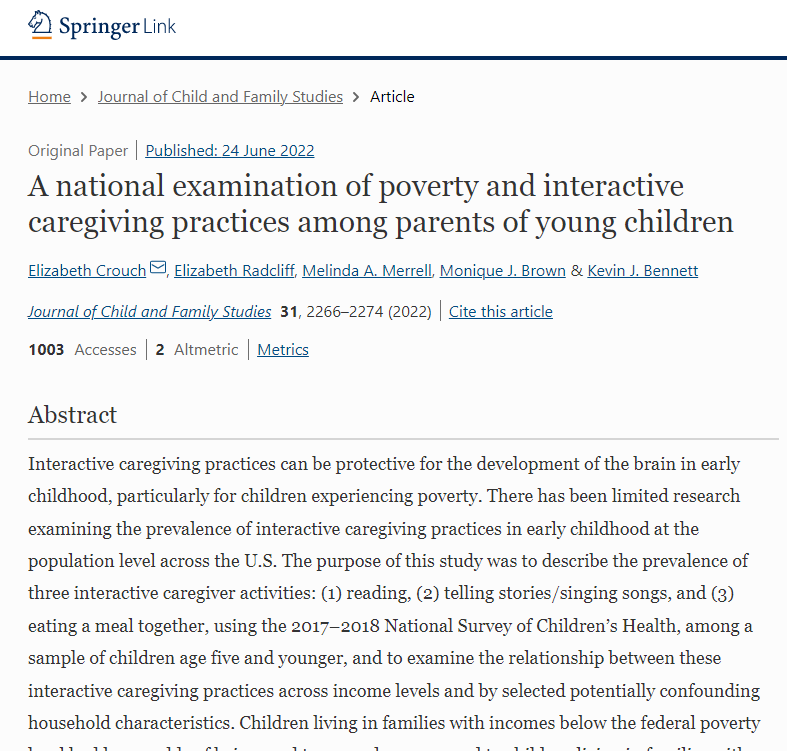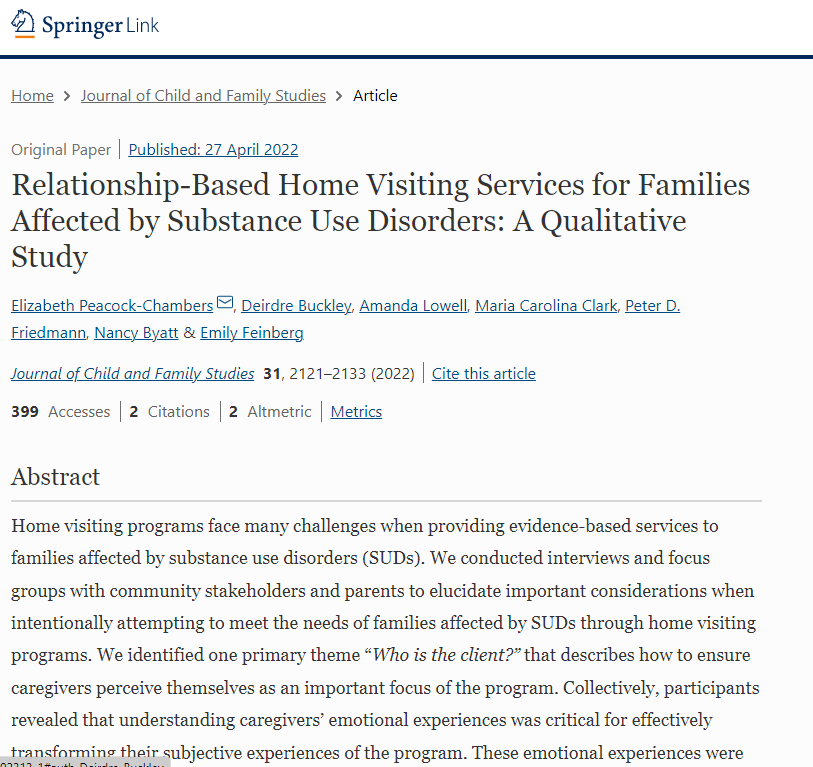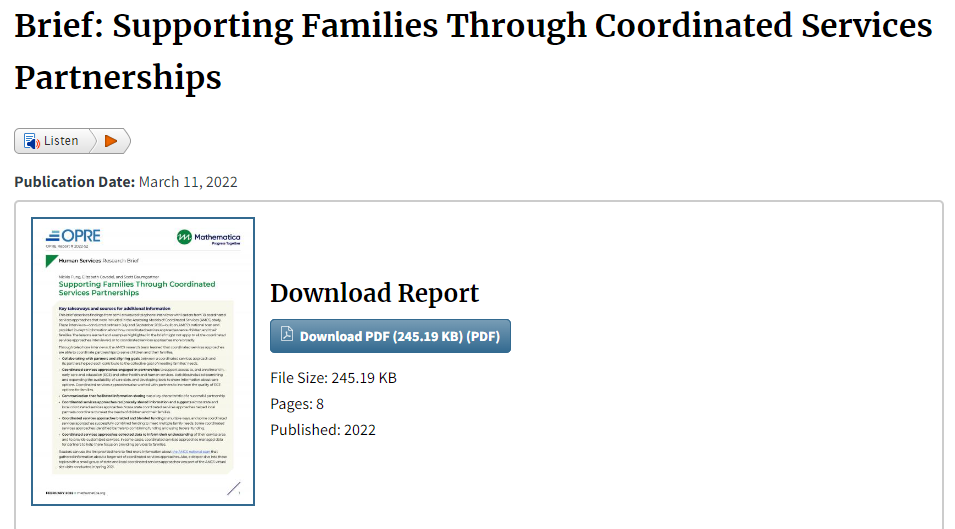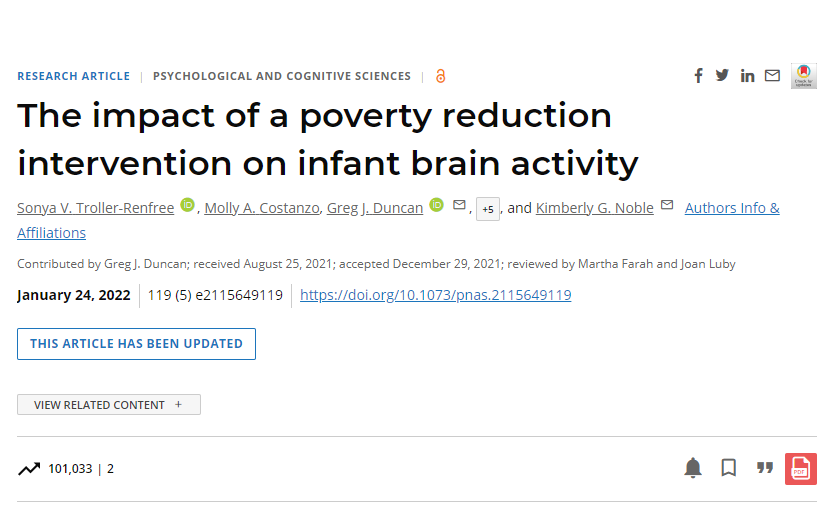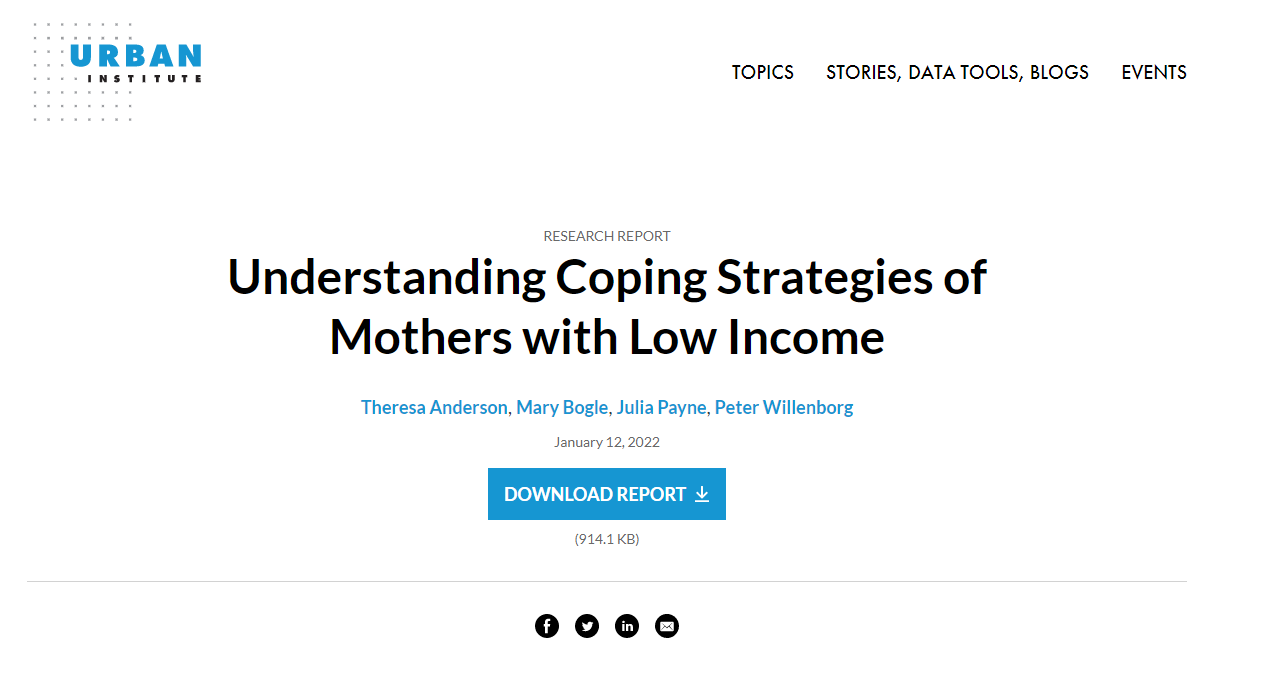Interactive parenting practices among parents of young children vary with income
Researchers at the Rural and Minority Health Research Center at the University of South Carolina have released their analysis of the National Survey of Children’s Health in which they explore the prevalence of three interactive caregiving activities—reading, storytelling/singing, and sharing meals—among children under age 5, with attention to differences across the income spectrum. The authors … Read more

